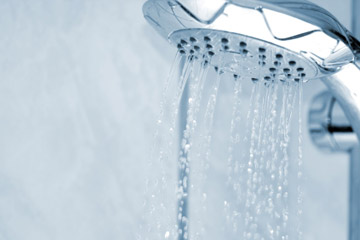
Baltimore's water supply is contained within reservoirs outside city limits that move water to Baltimore's water filtration plants. Three treatment plants process 405 million gallons of water every day for use by 1.8 million citizens within 560 square miles in and around Baltimore. Monthly samples are tested to ensure the safety of Baltimore's water supply.
Online Bill Paying

Citizens of Baltimore can opt to pay their water bill by mail, over the phone, in person, or online. Of these options, online payments are gaining popularity thanks to their convenience.
To pay online customers should visit http://cityservices.baltimorecity.gov/water/. Customers can either enter the account number found on the monthly bill or the service address of the property incurring the bill. This leads to a screen that provides the water bill detail. A button midway down the screen allows customers to pay online with a credit card or bank account. Payments via checking accounts are free; customers need the account and routing numbers associated with the checking account. Credit card payments incur a convenience fee. Personal savings accounts are not accepted.
Tips to Conserve Water

It is important to conserve water to benefit both the environment and a customer's budget. Finding and fixing leaks can help do both. Prominent areas for leaks include the toilet, faucets, and underground water lines.
- Toilets: Leaking toilets can waste more than 500 gallons per day. To check the toilet for leaks, place a few drops of red or blue food coloring into the toilet bowl. Wait for 30 minutes and flush. If the water in the toilet bowl is clear, there is no leak. If the water is colored, there is a leak. To prevent leaks, consider replacing the toilet flapper yearly. A few dollars once a year can save a lot of money later on.
- Faucets: A dripping faucet can waste 2000-3000 gallons of water in a year. Quickly fixing the problem saves both water and money. Sometimes homeowners can fix the faucet themselves with a few new parts while other times the entire faucet needs to be replaced.
- Underground water lines: Underground water leaks can be difficult to detect. Signs include a higher than usual water bill or water use that has been steadily climbing for several billing cycles, unexplained wet spots in the yard, sink holes, rusty water, or a noticeable drop in water pressure. Underground water leaks almost always require the help of a professional.
This site provides some basic information and tips for Baltimore City homeowners and may contain outdated or inaccurate information.